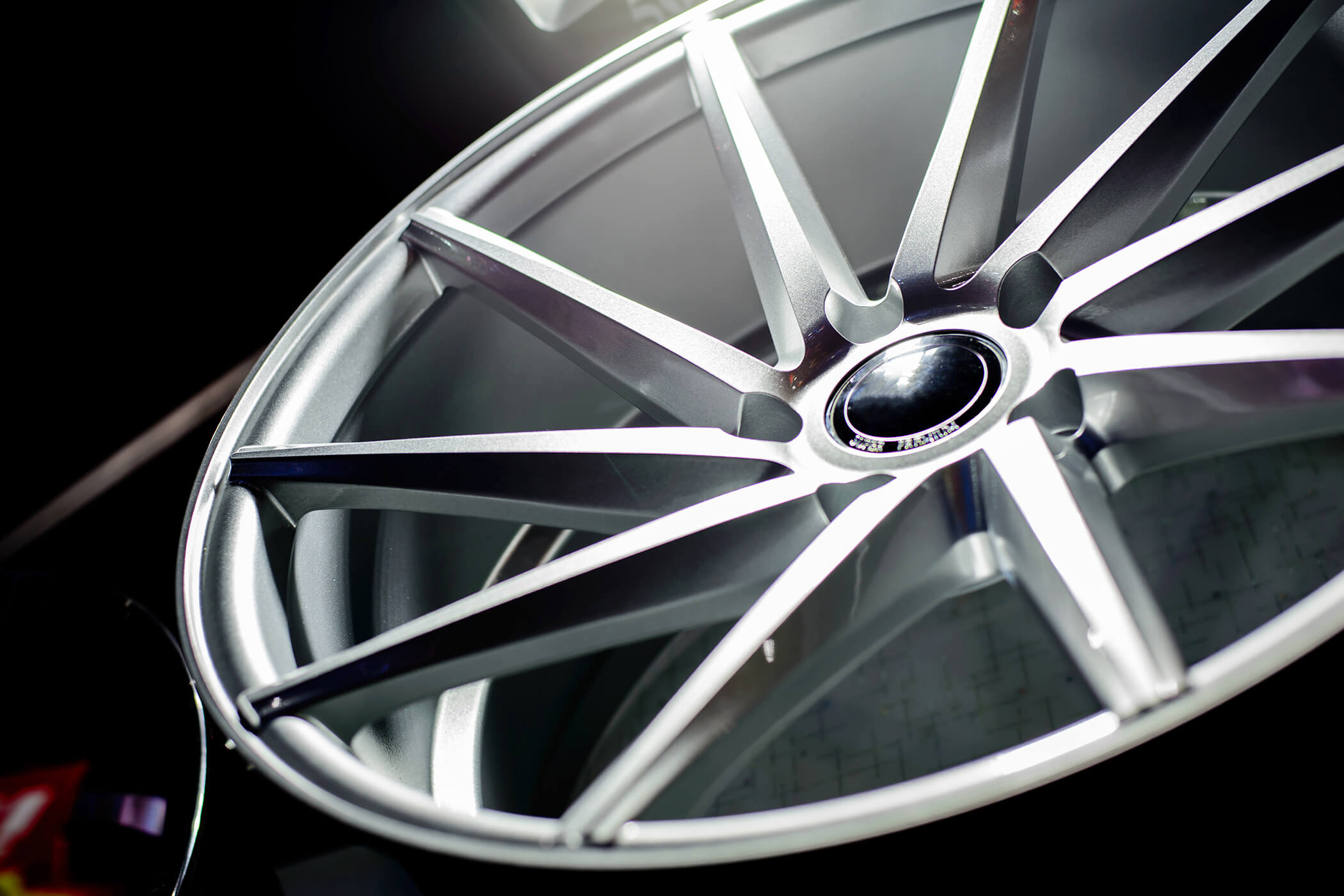Alloy wheels can make for a stunning feature on any car – but when they are damaged, the aesthetic of your entire vehicle is dampened. If your car has sustained some scratches or scuffs, our guide to fixing alloy wheel damage is here to help. With instructions on how to repair your wheels and tips on avoiding common causes of alloy damage, this article equips you with everything you need to know to keep your alloy wheels in pristine condition.
Fixing Alloy Wheel Damage: When To Go Professional
Even if you are a DIY enthusiast, certain jobs should be taken care of by professionals. While small dents and scratches can be rectified using a home repair kit, severe damage will require the help of a trained technician.
In a professional alloy wheel refurbishment, the tyres will be taken off the wheels, which are stripped of their existing finish. The wheel is inspected for damages, such as scuffs, scratches or gouges, which are noted for repair. The wheel is smoothed in preparation for refurbishment before a base coat is applied. A technician will then expertly paint the wheel with alloy paint. Finally, a coat of clear lacquer is applied to the wheel, sealing and protecting the paintwork. This process results in a stunning good-as-new finish, which cannot be achieved with a DIY kit. If you are in need of professional repairs, feel free to contact our team for paint work, car body, or crash repairs in Milton Keynes.
What Are Alloy Wheels?
Having gained popularity in the automotive industry in the late 1960s, alloy wheels have since become a staple feature on most modern cars. Made of a mixture of metals, such as aluminium and magnesium, these wheels offer great strength and striking visual appeal. Alloy wheels are most commonly made using an industrial process called casting. This method offers high styling versatility, as well as being environmentally friendly and having a high degree of dimensional accuracy.
Before alloy metals received recognition in the car world, car wheels were typically made from steel. Although steel is undeniably strong and durable, alloys are more lightweight. They dissipate heat better than steel, resulting in better braking performance and ensuring your safety while travelling in your vehicle.
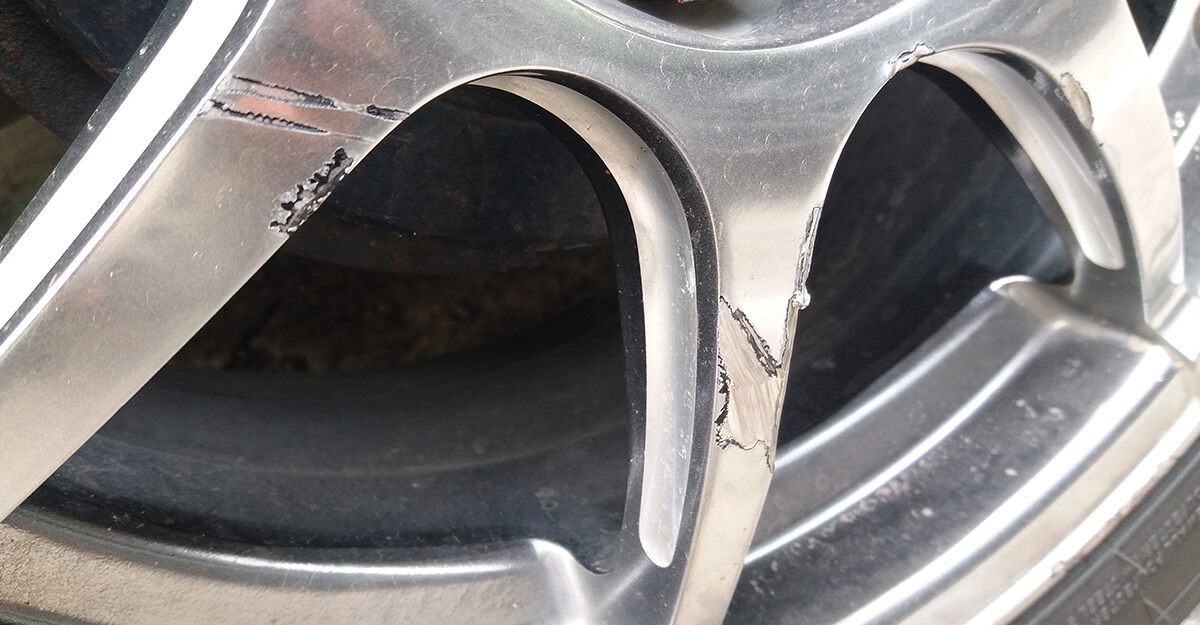
How To Repair Alloy Wheels
If your alloys have suffered minor damage, you can repair them using a DIY alloy wheel repair kit. The kit consists of all the materials you will need, including:
- Pre-measured sachets of alloy wheel filler
- Multi-purpose primer aerosol
- Hardener
- Tack cloth
- Sandpaper
- Mixing sheets
- Mini applicator
The instructions included with the kit will give you a clear guide on what you need to do to repair the damage, but to highlight how simple it is, we have outlined the basic steps below. Once your wheels are shining like brand-new, why not treat yourself to some custom body work in Milton Keynes?
- While wearing protective gloves, use sandpaper to roughen the damaged area of the wheel and approximately 2.5cm around it.
- Using a solvent wipe, remove any loose particles or grease
- Remove all of the filler from one of the sachets and place it on a mixing sheet
- Using the provided applicator, combine the filler with the correct amount of hardener until the mixture is a uniform colour
- Apply the filler in one layer to the roughened surface and allow to dry for 20-30 minutes
- Once fully dried, use sandpaper to remove any excess filler
- If you notice any small dents still present, cover them with a small amount of filler, leave it to dry, then re-sand
- Once you are satisfied that all dents have been filled, clean the area with the wipe provided and use the tack cloth to remove fine dust
- For optimal results, finish the repair by applying two even coats of multi-purpose primer (allowing 10 minutes between coats to dry)
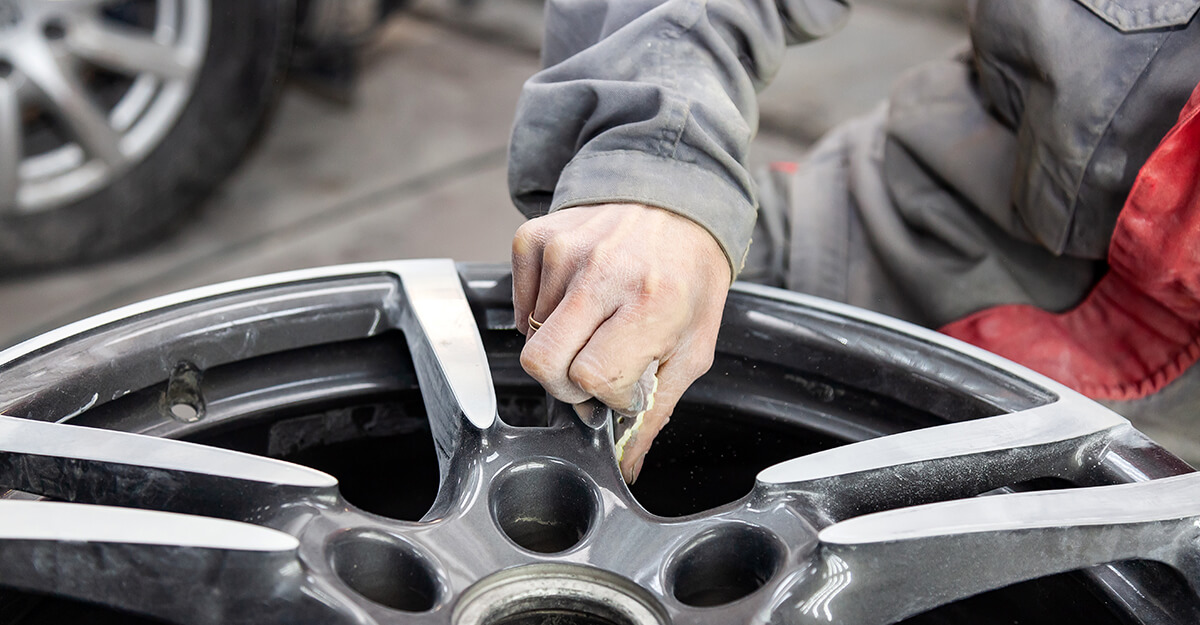
Causes Of Alloy Damage
Being aware of the common causes of alloy wheel damage allows you to be more mindful when driving and protect your vehicle from damage. Having provided hundreds of alloy wheel and car body repairs in Milton Keynes and the surrounding areas, we are very familiar with the main culprits of alloy wheel damage and can advise you on precautions you can take to avoid requiring repairs.
Curbing
Hitting the curb is probably the easiest way to cause damage to your alloy wheels – many motorists will have hit the curb at least once during their time as a driver. Unfortunately, this common mistake is highly detrimental to your alloys. Suppose you have a habit of driving a little too close to the pavement. In that case, you should create a reference point to aid you in establishing an ideal distance from the roadside. You can also create reference points inside your car to avoid hitting the curb during manoeuvres.
Potholes
The pothole problem in the UK has been grinding the gears of many motorists, as driving over them can result in very costly repairs. The detrimental impact potholes have on your car also makes them a major safety hazard that you should avoid at all costs. However, we know avoiding potholes in Britain is an almost impossible mission. So, we have compiled some advice on what you should do if you encounter a pothole while driving.
1. Be Alert
Protecting your car and passengers is of utmost importance, so you must always keep your eyes peeled. Frequently scanning the road ahead will allow you to identify potholes before driving over them. If you see a pothole in your path, you should reduce your speed but do not suddenly swerve, as this puts you and other road users in danger. You must be especially attentive to the roads in wet weather as deep potholes can be easily concealed beneath puddles.
2. Watch Your Speed
Hitting a pothole at a slow speed can damage your tyres, wheels and steering alignment. However, hitting one at a higher speed is even worse and could result in you losing control of your vehicle. For this reason, it is important to adhere to speed limits to allow yourself time to slow down and avoid severe damage and danger should you happen to spot a pothole. For more information on potholes and minimising the risk of damage to your car, check out this article by Torque Tips.
Under Inflated Tyres
The importance of keeping your tyres sufficiently inflated cannot be understated. Not only will this help you save fuel and reduce your emissions, but it will also help protect your alloys from damage. If your tyres are under-inflated, braking distances become longer and the chances of skidding increase significantly. To avoid damaging your alloys in this way, make sure to check your tyre pressure regularly.
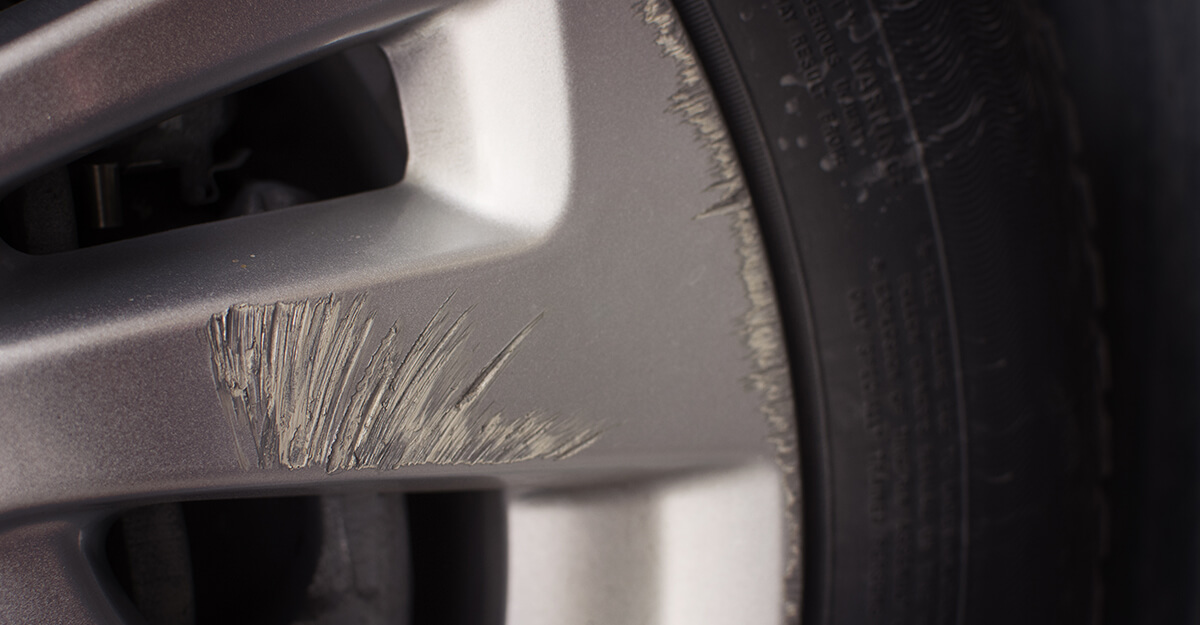
FAQs
Can you fix rim scratches?
Yes! Being right on the outside of your wheel, the rim is the most vulnerable to scratches. However, these can absolutely be repaired. For minor scratches, you can try the above method but if the damage is more extensive, you will need the help of a professional.
How To Repair Scratched Alloys
If your alloys are only lightly scratched, you can try the method above to repair the damage yourself. However, if the scratches are particularly bad, you should have a professional take a look.
What Is The Best Method For Repairing Alloy Wheel Scuffs?
Have an unsightly scuff on your alloy wheel? No need to panic! You can follow this simple method to repair your wheel yourself, so long as the damage isn’t too extensive. For more severe damage, it is a good idea to ask for help from a professional.
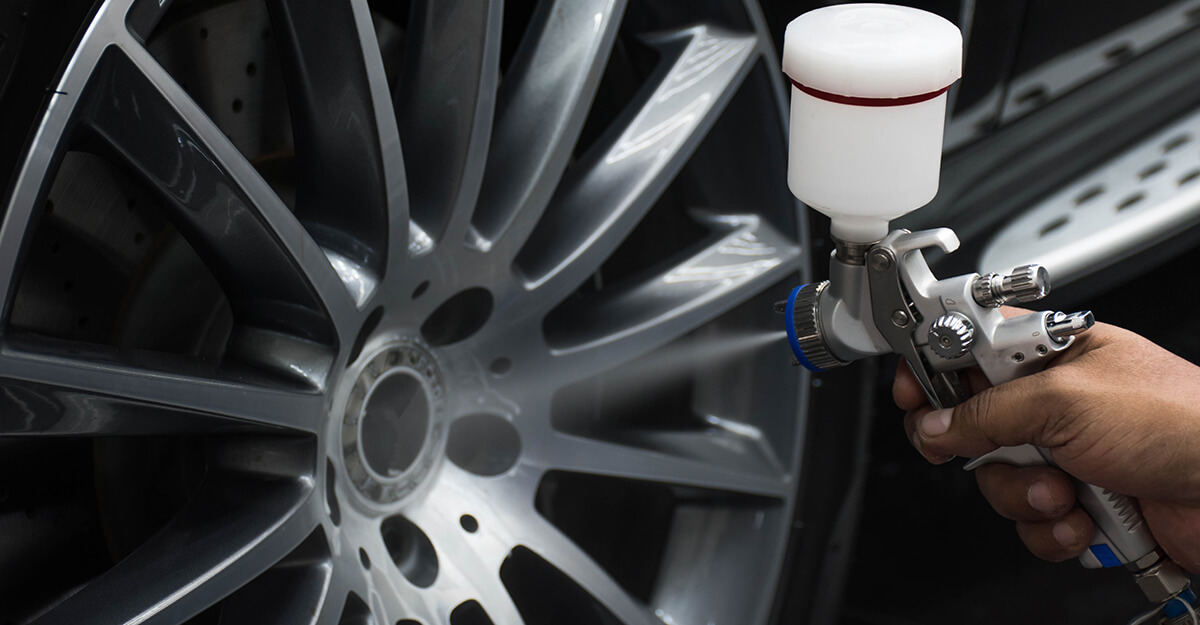
We Can Fix It
We hope that our article has informed you on alloy wheels and fixing alloy wheel damage, as well as the steps you can take to prevent it. If your vehicle has sustained damage, please do not hesitate to contact our team. As well as carrying out transformative alloy wheel repairs we also offer many other services, including paint work repairs in Milton Keynes. All of our services are carried out by a dedicated team of experts who aim to restore your vehicle to the highest standards. Meanwhile, if you want to learn how to remove scratches from your car, check out our previous article.


